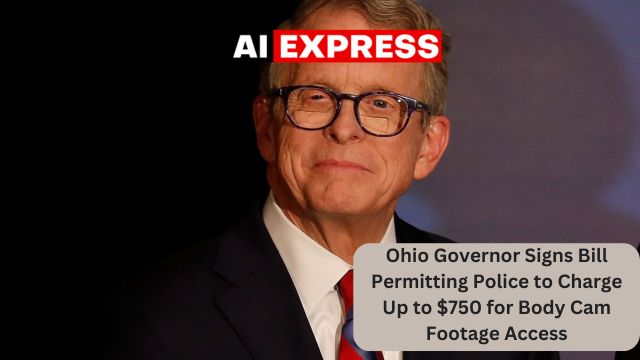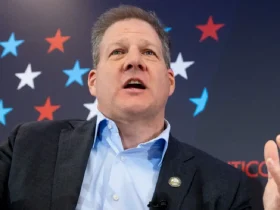Ohioans may soon not be able to easily view video from public police and jails because a controversial part was sneaked into the large package of bills that the legislature sent home at the end of the session.
Late Thursday night, Ohio Gov. Mike DeWine signed H.B. 315 into law. It is a 450-page omnibus bill that, among other things, lets cops charge people to watch videos from body cameras, dash cams, and jail surveillance cameras.
News 5 Cleveland and the Dayton Daily News say that the new law lets agencies charge a “estimated cost” of up to $75 per hour of footage to help pay for the work that goes into handling the video. The fee must not be more than $750 per request and will be charged before the video is given out.
DeWine told News 5 that he is a “strong proponent” of police cameras and does not plan to make it harder for people to see the footage, which is public record, even though the measure was criticized.
“Both body cameras worn by police and dashboard cameras have made investigations much better and have made police more accountable,” he said in a separate news release Thursday night.
“However, I am sensitive to the fact that this changing technology has affected law enforcement by oftentimes creating unfunded burdens on these agencies, especially when it comes to the often time-consuming and labor-intensive work it takes to provide them as public records.”
GOP state Rep. Bill Seitz, who pushed for the bill, told News 5 that the part of the law “only applies if you want the public office to make a copy of a video record, and only if it has to do with law enforcement, and only if the public office chooses to charge.”
He made it clear that people can still “look at the records for free and use their own phones or cameras to make their own video of the video.”
Still, Niraj Antani, a Republican state lawmaker, told the news source that he is “deeply concerned” that the fee to make the video public will be “burdensome.”
“When I pushed for HB 425—which made police body camera videos public record—our goal was to make sure that the public and news media could easily see body camera videos that were important to the public,” Antani told News 5. “Certainly, the cost of properly blurring out the videos and storage was something we discussed at length with our law enforcement partners.”
Jonathan Entin, a law professor at Case Western Reserve University, has already talked about how the provision could affect whether police video is shown to the public.
“You know how people say it’s hard to pay for things like groceries, clothes, the car, and medicine these days?” Entin told News 5 when the lawmakers first passed the bill. “If you have all of those things, $75 an hour for video, even for an hour, might be too much for you to pay, so you might not ask.”













Leave a Reply